According to writer Nguyen The Ky, the novel series “Nuoc non van dam” will have 5 volumes, volume 3 has just been released to readers, depicting the image of President Ho Chi Minh in 5 important stages in his life and great revolutionary career.
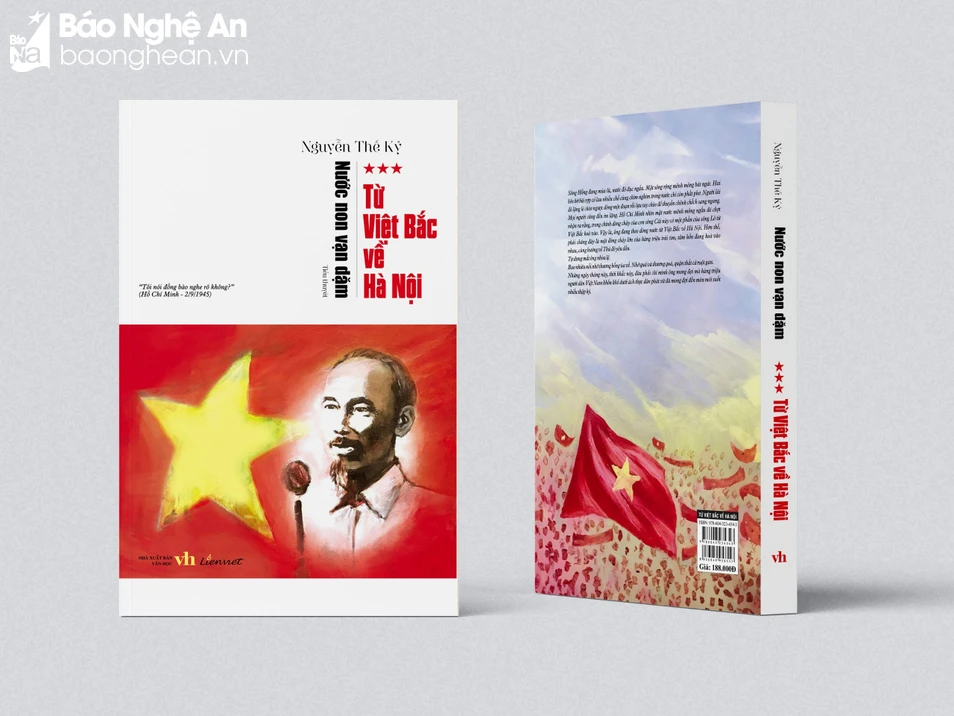
Episode 3 “From Viet Bac to Hanoi” (2024) depicts the image of Nguyen Ai Quoc - Ho Chi Minh from the beginning of 1941 to the successful August Revolution. On the afternoon of September 2, 1945, President Ho Chi Minh read the Declaration of Independence, giving birth to the Democratic Republic of Vietnam. During those 5 years, Nguyen Ai Quoc - Ho Chi Minh ignited and fanned the flame of revolution at the headland of the Fatherland “Far away mountains, far away waters/ It doesn’t have to be vast to be called/ Here is Lenin stream, there is Marx mountain/ With two hands we build a country”.
The real-life context of episode 3 takes place from 1941 to 1945. The Vietnamese revolutionary situation, although quiet on the outside, is seething inside, waiting for the opportunity to erupt into a big storm; the situation of neighboring China and the Chinese Communist Party, of the Nationalist government; important figures of the Soviet Union and the United States present in China; the developments of World War II; the weak faces of some politicians of the Viet Quoc, Viet Cach, Viet Nam Phuc Quoc Quan... who are in exile in China...
The third book provides readers with more information about the rich activities, strategic vision, and sharpness of leader Ho Chi Minh when he was active in Cao Bang, Bac Can, Tuyen Quang, and Thai Nguyen; his trips back and forth across the Vietnam-China border like a shuttle to connect with the Communist Party of China, grasp the situation of the Nationalist government; his arrest and detention by the Chiang Kai-shek government for more than a year, exiled through dozens of large and small prisons; the circumstances of the birth of the poems in "Prison Diary"; the affection of the Chinese people for Ho Chi Minh and his comrades;
He returned to the country and continued to lead the struggle for national liberation of our people to the victory of the August Revolution in 1945... Readers will be interested and attracted when reading the pages about the founding of the Vietnam Independence League, abbreviated as Viet Minh, by leader Ho Chi Minh and the Party Central Committee; He published the newspaper Vietnam Independence; He directed the establishment of small guerrilla teams, compiled the document "Guerrilla Fighting"; He established relationships quite early with the US representative in China and then with the US "Deer" group in Tuyen Quang in mid-1945... Those details from history have entered literature, creating newness and appeal for many pages.
At the end of volume 3, writer Nguyen The Ky depicts the moving and heroic atmosphere of our country before the General Uprising. “Early in the morning of August 22, Ho Chi Minh left Tan Trao for Hanoi. This was the first time in his life that he set foot in the capital of his country. After 30 years of wandering the four seas, having passed through many countries and continents, he finally returned to his beloved land at the head of the Fatherland and in the next 5 years, mainly by forest roads, he traveled from Cao Bang, through Bac Can, through Tuyen Quang, Thai Nguyen and then crossed the Red River to Hanoi. For the past few days, his health has not been good, the illness lasted right at the time when many big and difficult things were happening...”
“When he got close to Hanoi, the flood was raging. Many fields were submerged in vast waters. Seeing the water submerging houses, trees, and fields, his heart was filled with indescribable pain. Independence was near, but he had never forgotten the words of Lenin - his great teacher: "Seizing power is difficult, maintaining power is even more difficult". Seizing and maintaining power, solving hunger, illiteracy, improving the dark and backward way of life, and moreover, foreign forces were plotting to usurp power and invade..." (volume 3, page 181, From Viet Bac to Hanoi).
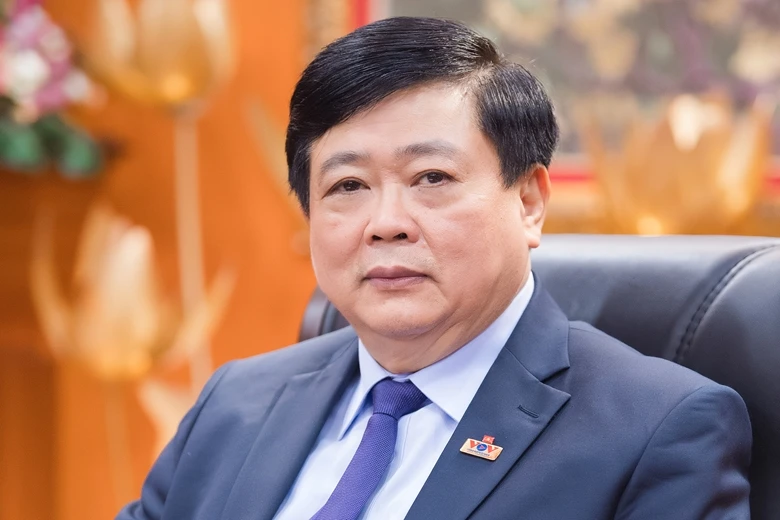
Previously, writer Nguyen The Ky released Volume 1 and Volume 2 of the book series.
Episode 1, titled "Debt to the Country" (2022) , depicts the image of Nguyen Sinh Cung - Nguyen Tat Thanh growing up with the painful lullaby of his grandmother and mother when he was born: "My child, remember this sentence/ Take care of your studies to have enough food and clothing/ Being a hungry person, clean and ragged, fragrant/ Fame and success are debts to the country that must be paid". At the age of 5, Cung, his parents and brother Khiem had to leave his grandmother and sister Thanh to go to the capital Hue, staying there for nearly 6 years (1895 - 1901); after Mrs. Hoang Thi Loan passed away at the age of 33 in a cramped rented house in Hue, the three fathers and sons of Nguyen Sinh Sac returned to Nam Dan, Nghe An.
The second trip to Hue (1906 - 1909), followed by the journey to the South of father and son Nguyen Sinh Sac and Nguyen Tat Thanh. They had a sad and painful meeting and farewell in Binh Khe, Binh Dinh with their father's advice "When the country is lost, the family is gone...when the country is lost, you must worry about finding the country, don't waste time looking for your father" (volume 1, pages 180, 181, NNN). Nguyen Tat Thanh entered Duc Thanh school, Phan Thiet as a teacher for a short time, then went to Saigon to leave the Saigon port on June 5, 1911 to cross the ocean to find a way to save the country.
Volume 2, titled “Drifting on the Four Seas” (2023), depicts the image of Nguyen Tat Thanh, under the new name Nguyen Van Ba, boarding a ship named Admiral Latouche Tresville to the West, as he later recounted, “I want to go abroad to see France and other countries. After seeing how they do things, I will return to help our people.” In France, Van Ba - Nguyen Ai Quoc, along with Phan Chau Trinh, Phan Van Truong and a number of Vietnamese patriots, sent “The Demands of the Annamese People” to the Versaille Conference (1919); On December 29, 1920, along with the absolute majority of delegates attending the 18th Congress of the French Socialist Party in the city of Tours, Nguyen Ai Quoc voted in favor of the Third International, and he was one of the founding members of the French Communist Party. In 1922, he founded the newspaper "The Miserable" (Le Paria). In the first article, he affirmed the newspaper's mission as "liberating people".
In the West, while working hard to earn a living and anxiously searching for a way to save the country and its people, Nguyen Ai Quoc clearly realized a sad and resentful truth: it was capitalism and the imperialist and colonial clique that caused all the oppression, exploitation, and suffering for workers, peasants, and other classes in the colonies and even in the mother country.
Later, he said: “At first, it was patriotism, not communism, that made me believe in Lenin, believe in the Third International”. Through patriotic activities, finding a way for the nation, he clearly understood that “only socialism and communism can liberate oppressed nations and workers around the world from slavery”. From patriotism, he came to Marxism-Leninism, absorbing the draft of VI Lenin’s Theses on national and colonial issues. In 1925, he published “The Verdict on the French Colonial Regime”.
Traveling for 30 years from East to West, from West to East through France, England, America, Africa, Australia, the Soviet Union, China, Thailand... to have the event on February 3, 1930, in Hong Kong, China, He represented the Communist International to convene the Conference to unify three communist organizations in the country into a single political party, the Communist Party of Vietnam, through the Brief Platform, Brief Strategy of the Party... drafted by Him, bringing the Vietnamese revolution into a new page of history. On January 28, 1941, He returned to the Fatherland as a brilliant milestone.
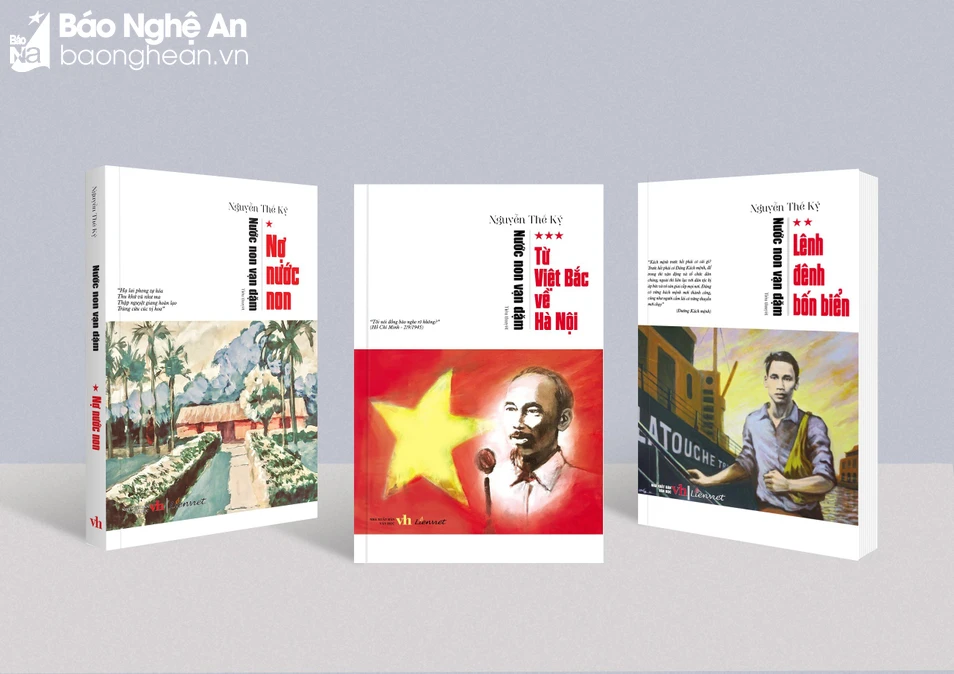
According to the author's plan, volume 4 will be released before September 2, 2024 and volume 5 will be released before May 19, 2025. The novel series "Nuoc non van dam" is considered a contemporary Vietnamese literary work that fully, deeply and vividly reflects the life and career of President Ho Chi Minh, especially the image of Ho Chi Minh, the person Ho Chi Minh, the revolutionary path of Ho Chi Minh, and the Ho Chi Minh era.
Source



![[Photo] Prime Minister Pham Minh Chinh starts construction of vital highway through Thai Binh and Nam Dinh](https://vphoto.vietnam.vn/thumb/1200x675/vietnam/resource/IMAGE/2025/5/12/52d98584ccea4c8dbf7c7f7484433af5)


![[Photo] Prime Minister Pham Minh Chinh works with the Standing Committee of Thai Binh Provincial Party Committee](https://vphoto.vietnam.vn/thumb/1200x675/vietnam/resource/IMAGE/2025/5/12/f514ab990c544e05a446f77bba59c7d1)
![[Photo] Prime Minister Pham Minh Chinh receives Swedish Minister of International Development Cooperation and Foreign Trade](https://vphoto.vietnam.vn/thumb/1200x675/vietnam/resource/IMAGE/2025/5/12/ae50d0bb57584fd1bbe1cd77d9ad6d97)



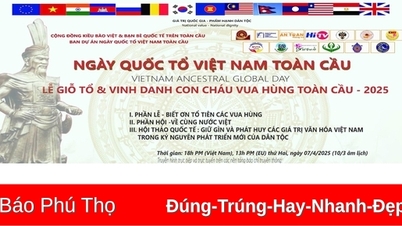
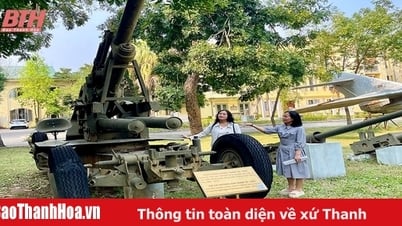
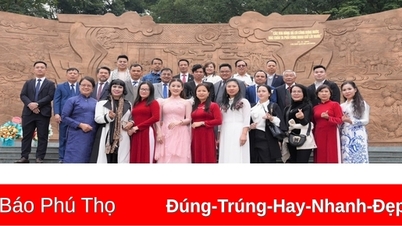



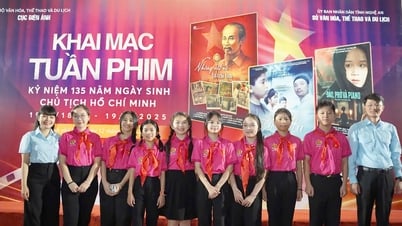
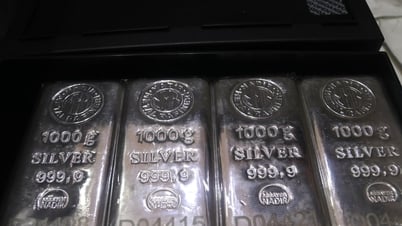
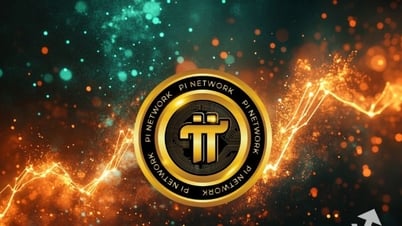
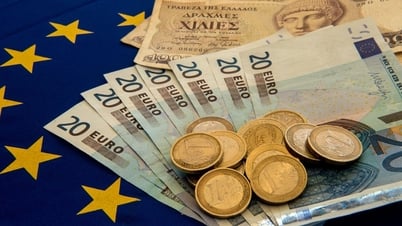
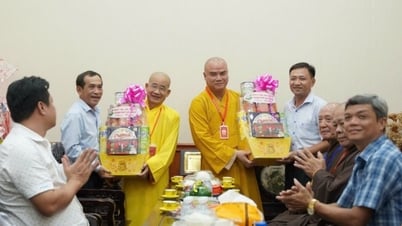






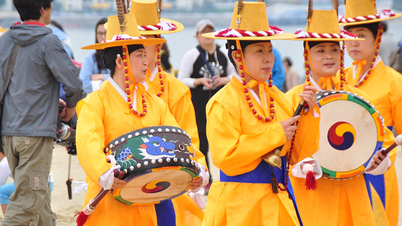
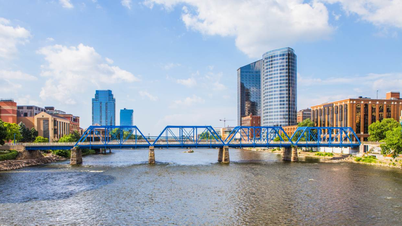



































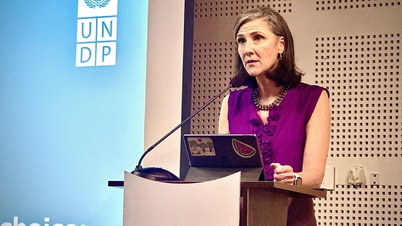

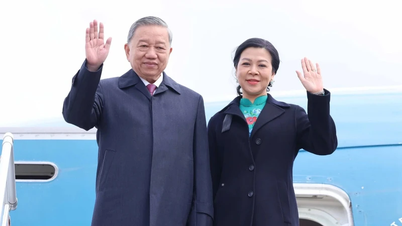
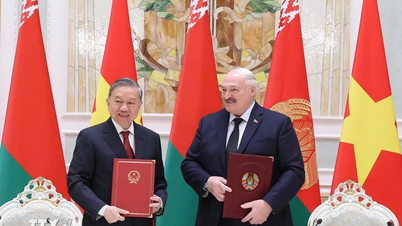












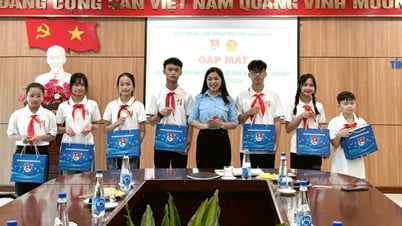

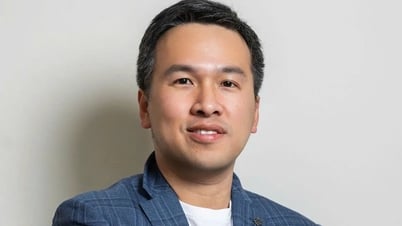
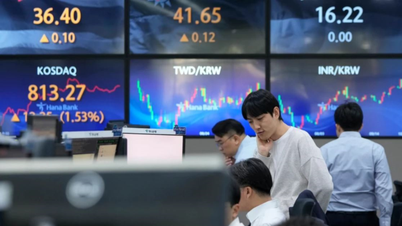













Comment (0)